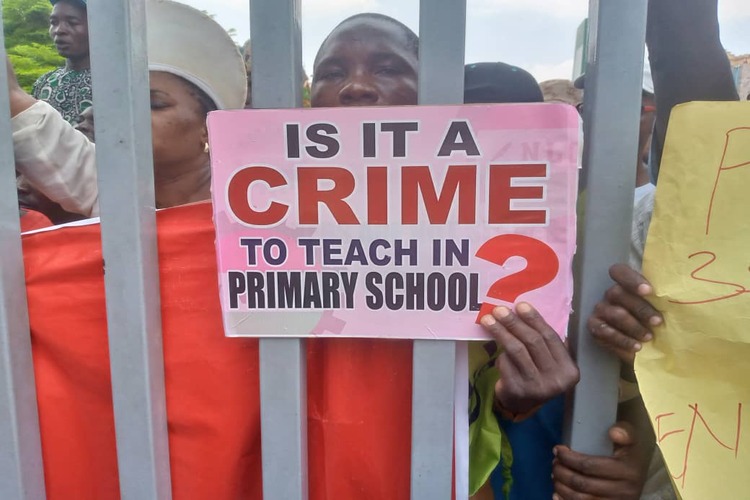According to Alausa, a committee is already working on a model that would offer indirect reimbursements to private schools for each out-of-school child successfully reintegrated into the classroom.
16th July 2025 09:24 PM ![]()

The Minister of Education, Tunji Alausa, has announced plans to collaborate with his Federal Capital Territory counterpart, Nyesom Wike, to engage the National Assembly on resolving the issue of unpaid salaries for teachers in government-owned schools, particularly in Abuja.
He spoke at the official launch of the National Policy on Non-State Schools in Abuja, just as he confirmed that both ministers are working to push for a structural solution to the recurring salary crisis in the FCT education system.
He said; “Getting the teachers back to school is just one part of fixing the problem,” he said. “We must address the root cause. Unlike other states that have functional State Universal Basic Education Boards paying teacher salaries under the UBE initiative, the FCT still lacks such a structure.”
Alausa therefore acknowledged the critical role Wike played behind the scenes in resolving the recent teachers’ strike, which led to the return of pupils in early childcare and primary schools to the classroom across the territory.
“I will work with Hon Wike and we will make a representation to the National Assembly on how the salaries of teachers in the FCT can be funded directly, possibly through a functioning SUBEB,” he said, calling the reform necessary to ensure a sustainable solution.
The minister also used the occasion to unveil the new National Policy on Non-State Schools, describing it as a vital component of President Bola Tinubu’s Renewed Hope Agenda.
“This policy is a crucial step toward reforming our education sector. By tapping into the potential of non-state schools, we can expand access, enhance quality, and reduce the number of out-of-school children,” he stated.
The minister said the policy sets clear guidelines for infrastructure, teacher standards, curriculum delivery, and outlines a framework for public-private collaboration.
According to Alausa, a committee is already working on a model that would offer indirect reimbursements to private schools for each out-of-school child successfully reintegrated into the classroom.
“Our target is to implement this programme by the 2025/2026 academic session, starting in September,” he said.